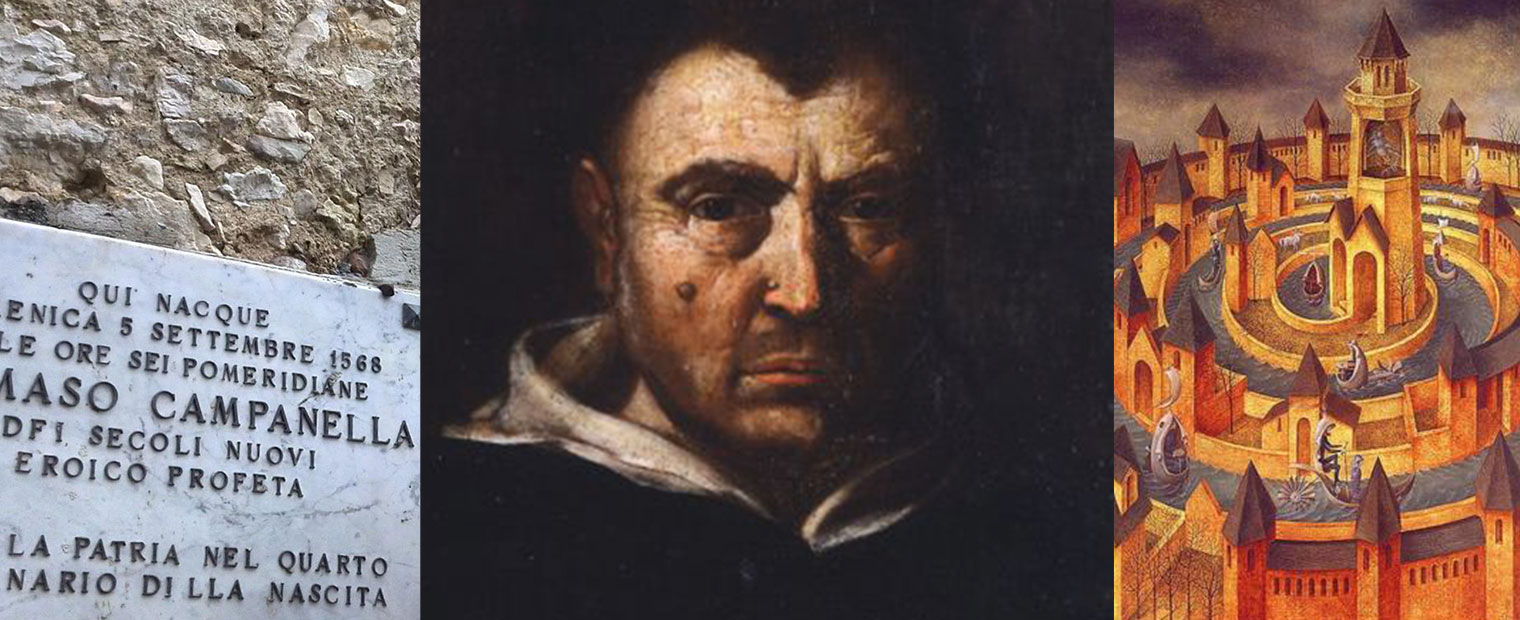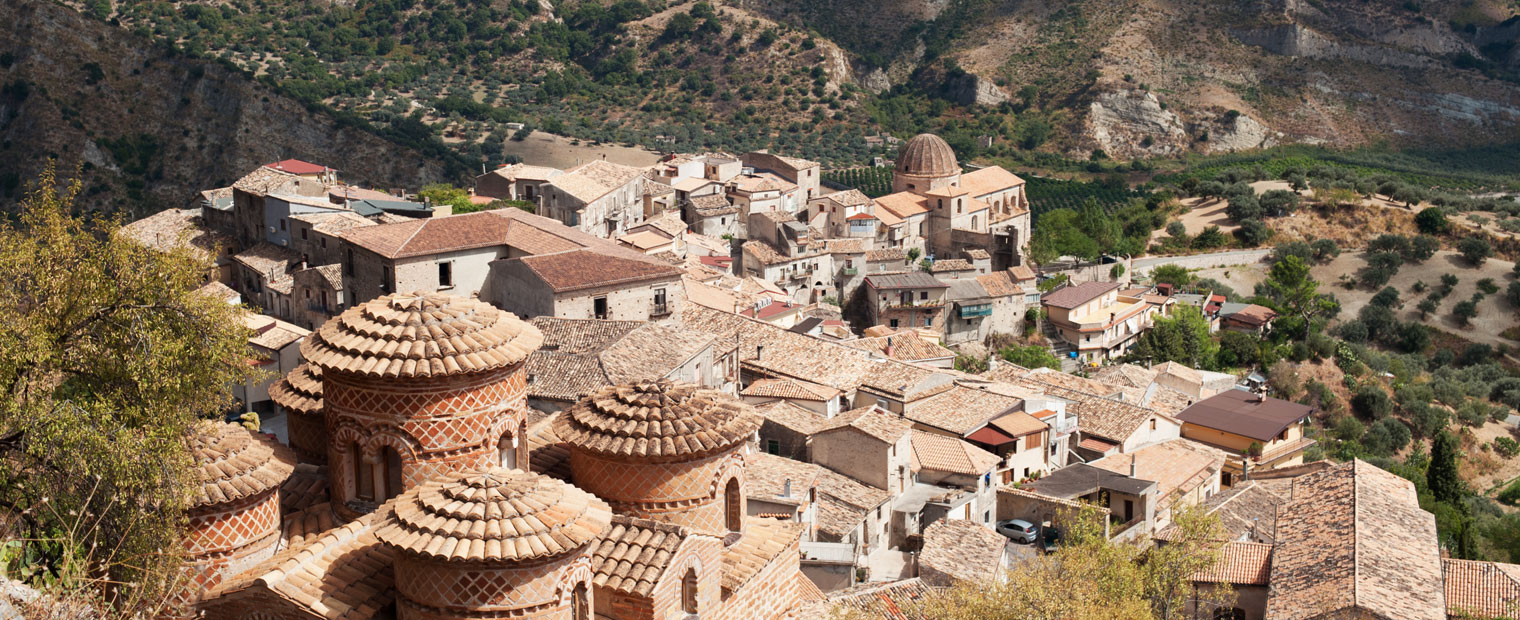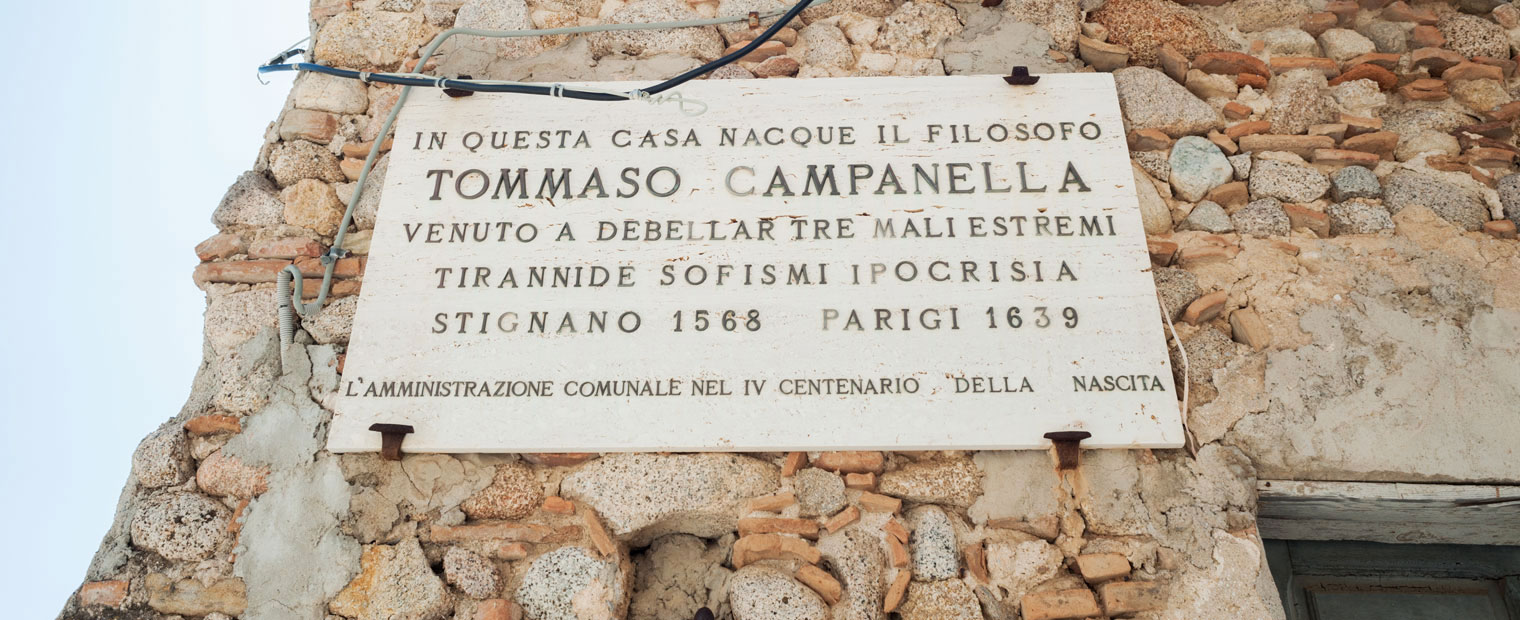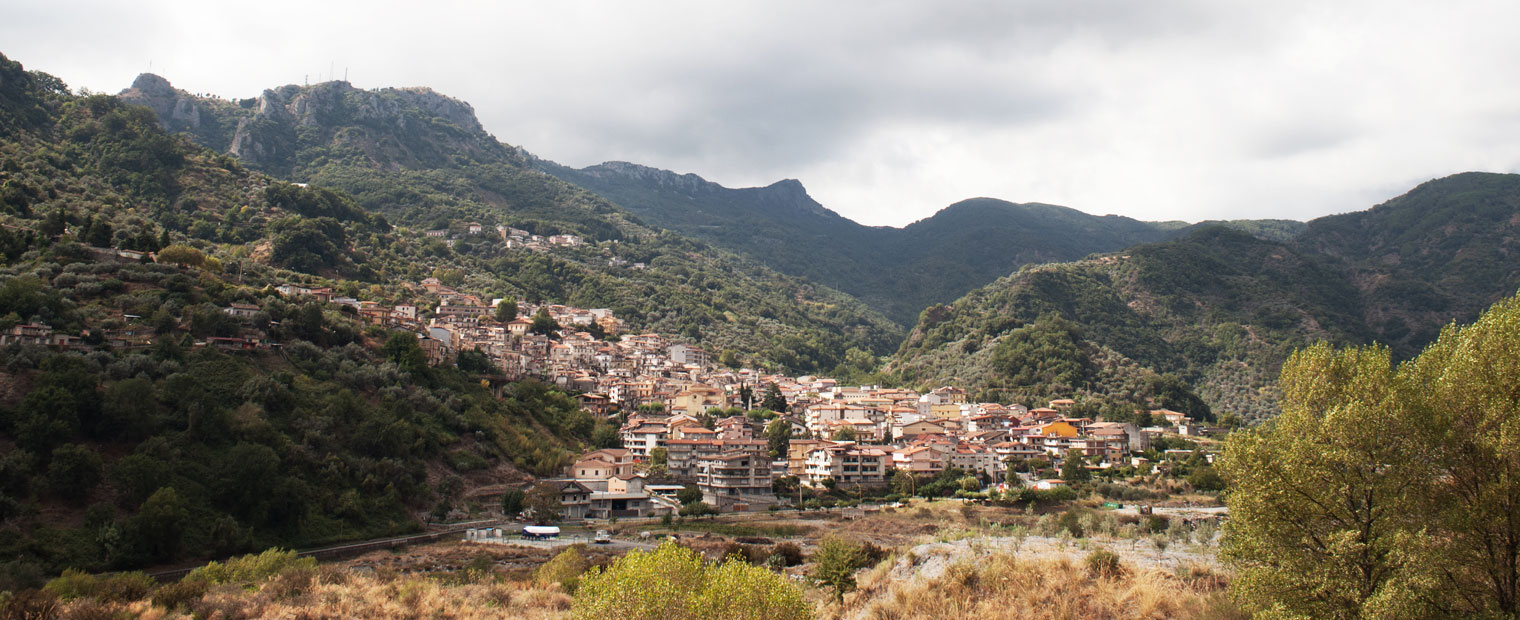Giovanni Domenico Campanella, who came from a family of humble origins, was born in the town of Stilo, in the district of Borgo, on September 5th, 1568. As a teenager, he joined the Dominican order, assuming the name of Fra’ Tommaso after he took his religious vows. His native town remembers him today with an imposing bronze statue that stands in the centre of Piazza San Francesco. Resting on a granite base, it is the work of the Modena sculptor Ernesto Gazzeri. He young friar first studied in the convent of San Giorgio Morgeto and then in Naples, immediately highlighting himself for his intellectual wit and dedication to study. The historical period in which Campanella lived was an era rich in political events throughout Italy, especially in the South Under Spanish rule, the southern peninsula became a revolutionary laboratory, which found in the Calabrian philosopher a theoretical point of reference for concrete action. Campanella is a tenacious opponent of all tyranny and throughout his life he pursued the dream of creating an independent and autonomous Calabrian Republic; the liberation of the southern regions from the Spanish crown proved to be an ideal tension, claiming autonomy and freedom.
“I was born to eradicate three extreme evils: tyranny, sophistry, and hypocrisy”
Campanella: a rebellious philosopher
Fascinated by the study of philosophy and politics to which he studied for several years, he naturally devoted himself to teaching. His rebellious or intolerant nature towards any form of abuse led him to organise an insurrection starting from Calabria. However, his revolutionary experience was nipped in the bud because he was a victim of delusion by an infiltrator. Sentenced for anti-Spanish conspiracy, he was jailed for twenty-seven years from 1599 to 1526.
He spent his time imprisoned isolated in the Castle of Sant’Elmo in Naples where he composed his most important works such as: A Discourse Touching the Spanish Monarchy, The City of the Sun, The Sense of Things and Natural Magic, and Monarchy of the Messiah. Subjected to constant interrogation and heavy torture, he pretends to be mad and avoids having to renounce his theories. He managed to avoid being condemned to the stake like the philosopher Giordano Bruno had been only a few years earlier. Freed from prison, he approached the policies of Pope Urbano VIII, which involved him as a theologian and astronomer. Even the papacy’s support, however, could not save him from the extradition request made directly by Spain. The only option was to escape towards France. Here Campanella received many honours and had the opportunity to finally begin the publication of his works, which were immediately a great success throughout Europe. He died in 1639 in the convent of Saint-Honoré, which later became the seat of the first Jacobin Club in Paris during the French Revolution. Before dying, he dictated his autobiography, De libris propriis et recta ratione studendi syntagma, published only posthumously in 1642.
The City of the Sun, the dream for a happy society
Considered rightly as the first great modern utopian, in the wake of the philosopher Thomas More, he wrote his masterpiece while in a Naples prison: The City of the Sun. Written in Italian, the work was later published in Latin, and was distributed all over Europe. It has been read and loved over the centuries by generations of scholars, philosophers, and revolutionaries. It is considered as a reference point for those who love freedom above all other values.
The City of the Sun is constructed as literary fiction, a tactic similar to the one that More employs in his Utopia. The book revolves around a dialogue between a crusader, a knight from the Order of the Hospitallers of San Giovanni, and a sailor from Genoa, the helmsman of Colombo. The two protagonists converse using the Platonic model; the Hospitaller is the one who asks the questions, and through these questions he discovers the existence of the City of the Sun. The sailor recounts the principles, fundamental ideals, and organisational aspects of this utopian city-state.
The City of the Sun has no precise geographical location. It is found somewhere in the Indian Ocean, probably in the Sumatra area, or it may be an island in Indonesia. Its leader is a ruler called Metaphysician, in a clear reference to Plato; the sun is an emblem of the world of ideas belonging to the Greek philosopher and is the idea of good that illuminates all other ideas. Government power is entrusted to three ministers/enlightened rulers: Pon, Sin and Mor. Pon embodies power, Sin knowledge, and Mor love. The power of love concerns itself with the education of citizens, called “solar”, who are educated in the liberal arts, astronomy, grammar, music, and poetry. Culture, according to Campanella’s views, elevates humankind. The foundation of the social life is the city of communion of goods, an evangelical Christian communism. Everything is common between men and women, and the laws are conveyed through education; there are sanctions enforced by officers who must fine those who do not respect the law. The law is useful, but the best tool is the one contained within each person: moral law. People are guided according to their inclinations and merits; for some trades, such as politics, the best are taken into consideration. Healthcare and education are free of charge for all the solari citizens.
They work for four hours a day and precisely because everyone has access to school, healthcare, and food, there are few reasons to commit a crime. In this case, there is the anthropological vision of the Calabrian philosopher. The inhabitants of the City of the Sun can profess any religion; there is tolerance for every cult, even if Campanella, through the mouth of the Genoese helmsman, says that the religion that comes closest to nature is Christianity, the religion of hospitality, love, and sociality, and certainly not the religion of the hatred of reason, dogmas, the Holy Inquisition, the religion that, ironically, will persecute him throughout his existence.



